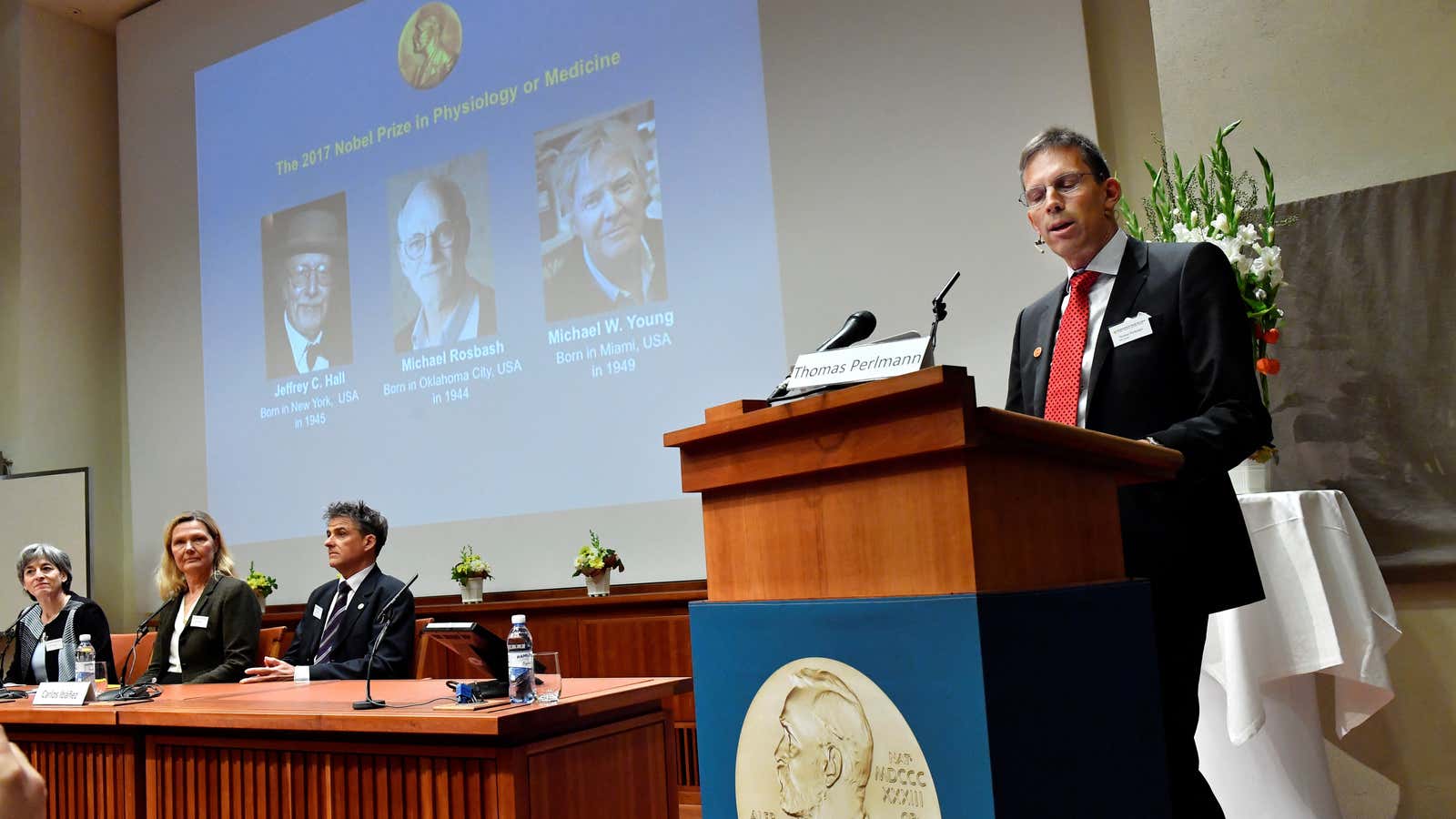The 2017 Nobel Prize in Physiology or Medicine has been awarded to Jeffrey C. Hall, Michael Rosbash, and Michael W. Young.
The trio won the prize for their discovery of “molecular mechanisms controlling the circadian rhythm.” In short, the researchers were able to “peek inside” the biological clocks of living organisms—which help to regulate sleep patterns, feeding behavior, hormone release, and blood pressure—to better understand how life responds to the Earth’s rotation.
This year’s Nobel prize for medicine is a triple win for the US, which boasts the most Nobel prize winners. Hall was born in New York in 1945 and performed his seminal work at Brandeis University (he is now retired). Rosbash was born in Kansas City and carried out his work at Brandeis University, too, where he remains a member of the faculty. Young was born in Miami in 1949, and has been on staff at Rockefeller University in New York since 1978.
The researchers and were able to isolate a gene in fruit flies that controls the daily biological rhythm. They were able to show how the gene encodes a protein that builds up in cells at night, but then degrades during the day. The researchers also identified other protein components involved in this process, highlighting the minute mechanisms governing the clockwork inside a cell. The winners have raised “awareness of the importance of a proper sleep hygiene” said Juleen Zierath of the Nobel academy.
When the Nobel committee told Rosbach that he won the prize, he reportedly said: “You are kidding me.” The excitement might make for a sleepless night.
